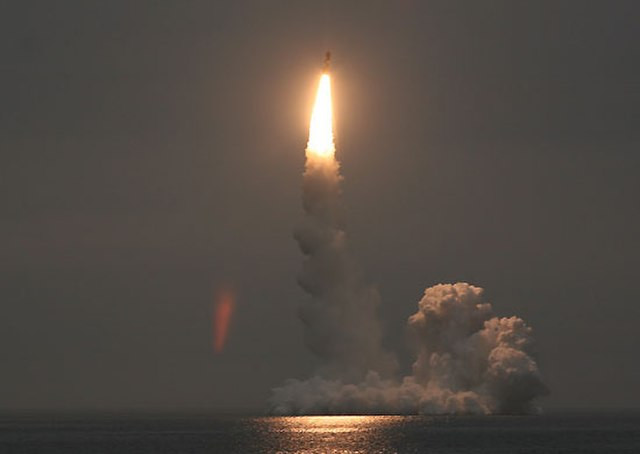In late 2022, the United States began "preparing rigorously" for the possibility of Russia launching a nuclear strike against Ukraine, two senior administration officials told CNN. The Biden administration was particularly concerned about the potential use of a tactical or battlefield nuclear weapon, which would have been the first nuclear attack in war since the US dropped atomic bombs on Hiroshima and Nagasaki nearly 80 years ago.
The heightened alert was triggered by a combination of developments, analysis, and highly sensitive new intelligence, rather than a single indicator. "Our fear was not just hypothetical - it was also based on some information that we picked up," a second senior administration official said, emphasizing the need for meticulous planning to ensure readiness in the event of this once-unthinkable possibility.
Throughout the late summer and fall of 2022, the US National Security Council held a series of meetings to establish contingency plans for a potential Russian nuclear attack on Ukraine. The focus was on how the United States would respond, either if there were clear signs of an impending attack or if such an attack occurred, with the goal of preempting or deterring such actions.
The concerns intensified during late summer 2022, as Russian forces faced devastating losses and Ukrainian troops advanced on Russian-occupied Kherson, a key city. The potential loss of entire Russian units threatened to be a "potential trigger" for nuclear weapon use, with US officials fearing that Russian President Vladimir Putin might perceive this as a direct threat to Russia.
Adding to the growing unease, Russia's defense minister, Sergei Shoigu, warned Western countries in October 2022 about a potential Ukrainian dirty bomb plot, a claim dismissed by US and other officials. This false flag story raised concerns that Russia might use it as a pretext for drastic action. Moreover, Western intelligence intercepted Russian officials discussing a nuclear strike, further heightening alarm among US officials.
US officials expressed uncertainty about their ability to detect the movement of tactical nuclear weapons by Russia, as these compact weapons could be discreetly relocated and launched from conventional systems already present on the Ukrainian battlefield.
In response to the rising threat, the US collaborated closely with its allies to develop contingency plans and convey warnings to Russia about the repercussions of a nuclear attack. Secretary of State Antony Blinken, Joint Chiefs Chairman General Mark Milley, and CIA Director Bill Burns engaged in direct communications with their Russian counterparts to express US concerns and gauge Russian intentions.
The US also sought the assistance of non-allies, particularly China and India, to dissuade Russia from considering such a move. US officials emphasized that the diplomatic outreach and public statements made by Chinese leader Xi Jinping and Indian Prime Minister Narendra Modi played a significant role in averting a crisis.
"I think we believe showing the international community the concern about this, particularly the concern from key countries for Russia and the Global South, was also a helpful, persuasive factor and showed them what the cost of all this could be," the first senior administration official said.
Following the nuclear concerns of late 2022, the threat lessened as the war entered a phase of relative stalemate in the eastern regions. However, the US and its allies remain watchful, with a senior US official telling CNN, "We continue to refine plans, and it's not beyond the realm of possibility that we could be confronting at least the rising risk of this again in the months ahead."
The revelations about the US's rigorous preparations for a potential Russian nuclear strike in Ukraine underscore the gravity of the situation and the unprecedented measures taken by the Biden administration to prevent a catastrophic escalation of the conflict. As the war continues, the international community remains vigilant, working together to maintain stability and deter the use of nuclear weapons.




